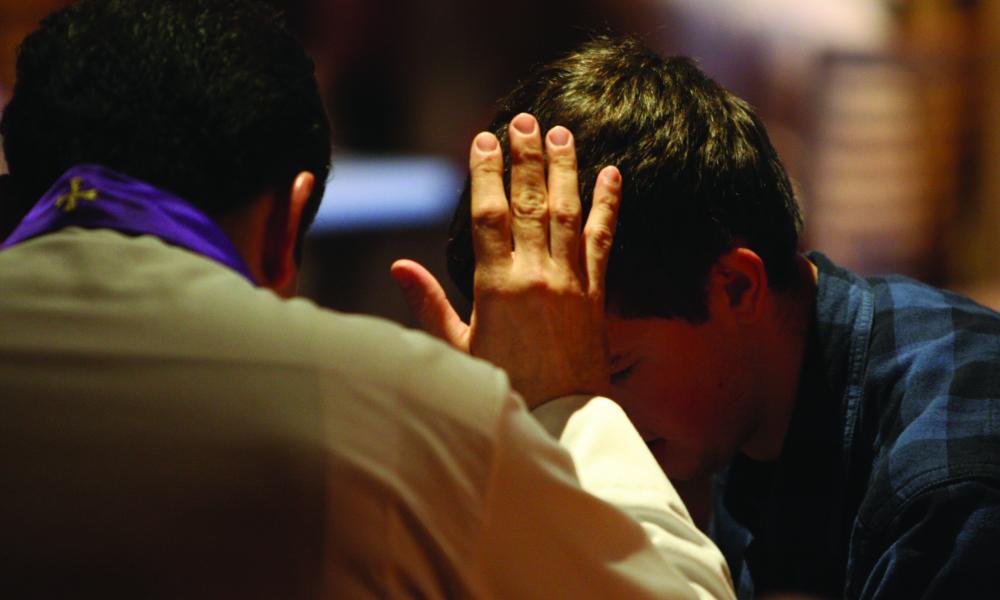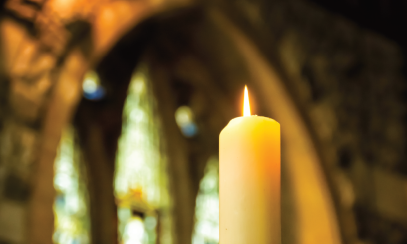
Dear Fr. Joe: How do I go to confession?
Q. Father, It’s been a long time since I’ve gone to confession – what should I expect?
Q. Father, It’s been a long time since I’ve gone to confession – what should I expect?
A. Last time, I talked about how to go to confession. We made an examination of conscience, I got you inside the confessional – now, let’s look at what to expect next.
At this point, you’ll tell your sins. In terms of confessing, you want to remember that this is not spiritual direction. Spiritual direction is a “gathering together” of two in the name of Jesus, the spiritual director and the directee, to help a person to develop a closer relationship with God and to better discern how the Holy Spirit is leading in their life.
The sacrament of reconciliation is not really the time for that. This is the time to ask God’s forgiveness and receive it with joy. If you have a situation in your life where you need guidance or if you have theological questions, you may want to make an appointment to talk to the priest later.
So, if you made a list, this is the time to share it. Remember a couple things here – you don’t need to tell the priest the “whole story” of why you were disrespectful to your spouse or impatient with your kids. If he wants more details, he’ll ask for them. You also want to be sure that you remember that these are sins. This is not something you “are working on” – these are sins. We confess them because they are bad for us and God wants to free us! We work on cars, not our sins.
Tip: You may not be sure if something is a sin. Don’t hesitate to ask!
I know some people worry about getting emotional: Please don’t worry. If the priest is worth his salt, he’ll not only be ready for it, but also expect it. The beautiful, life-giving process of receiving God’s mercy is often very emotional. Don’t apologize for your tears – these are gifts that you offer God.
When you are finished, let the priest know in some way. I like the old “These are my sins”.
At this point, the priest may offer you some words of consolation or challenge. Remember, for this sacrament to work best, you’ll need three things:
1. Knowledge of your sins
2. Sorrow for your sins
3. Trust in God’s mercy
Everything the priest says should take you back to those three points.
Once he’s spoken to you, he’ll offer you a penance. What is a penance? Penance is another word for a discipline to help guide the process of your repentance. For example, if you are sinning against purity, then he may ask you to pray a certain number of Hail Mary’s, asking our Mother to send you the grace of her Son for purity. If you are sinning by being selfish or stingy, he may ask you to volunteer at the local homeless shelter. Each act of penance is not done to “make up for” your sin: Jesus did that. It’s to help you practice the virtue that God wants you to live.
Now, once you’ve got your penance, he’ll invite you to offer an Act of Contrition or Prayer of Sorrow or something similar. This is where you’ll say something that expresses that you know your sins, are sorry for your sins and trust in God’s mercy. There are many options out there for you, pick one that you like best.
Tip: Print out your Act of Contrition and bring it with you so you can read it!
Once that is done, the priest will stretch out his hand and pray what is called the “Prayer of Absolution.” The key is when he says the last line, which is “I absolve you of your sins, in the name of the Father, the Son and the Holy Spirit.”
When that is finished, the priest will say any number of things as a closing. I say “The Lord has freed you, go in peace” to which you can respond “Thanks be to God!”
Now, you aren’t finished yet! It turns out that, after you leave, you’ve got a couple more things to do.
First, be sure and thank God because, according to our catechism, you and Jesus just accomplished the following:
You’ve reconciled with God and his Church and received his grace. You’ve allowed God to take away the punishments our sins merit, you’ve received the gift of consolation and you’ve been given what you need to fight the good fight of faith!
Second, ask the Holy Spirit to give you the gift of accepting the mercy that has been offered to you. I often will explain this to people in the sacrament this way:
In Reconciliation, you are giving Jesus your sins. He is taking those sins with him to the Garden of Gethsemane and then to the cross. He is killing your sins – and that would be enough to give you joy all of your days.
But he did even more. By rising from the dead, he shows us that all of our sin, all of our guilt were not strong enough to overcome his love.
So, those sins you confessed? Gone. Not your property anymore. They belong to God and you can’t have them back. When or if you start to feel guilt again about what you’ve confessed, reject that guilt in the name of Jesus. He took care of it. It’s over.
I personally believe that everyone should go to confession at least once a month. It’s a great gift that the Church offers us and an amazing experience.
Enjoy another day in God’s presence!



